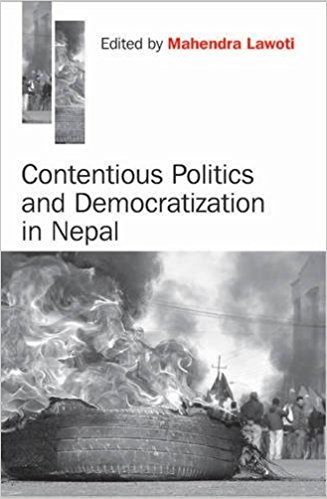We have here a book of essays put together by Mahendra Lawoti, who teaches Political Science in Western Michigan University, and is President of the Association for Nepal and Himalayan Studies in the United States. These essays have been written by a group of younger scholars located in Canada and the United States, also in Nepal. The latter have largely been trained abroad. Together they explore various facets of the political struggles and divisive politics that have excoriated Nepal since democracy was ushered in the monarchical state in 1990. They also analyse the influence of these contentious politics, good and bad, for Nepal’s democratization process. Revolutions have ushered epochal changes in nations, engendering a decompression effect on their polity that has long proceeded in a particular direction. Consequently, suppressed political forces are unleashed, which could take the nation in unexpected directions.
Ideally, the overthrow of an autocratic regime should engender a democratization process, with power transiting in an orderly fashion from the despotic few to the unprivileged many. Equally, however, a revolu-tion could result in a more repressive regime establishing itself, especially if the release of political energy leads to chaos and anarchic conditions. It is an empirical fact that revolutions have a way of swallowing up their leaders, as the course followed by the French and Russian revolutions must inform us.

